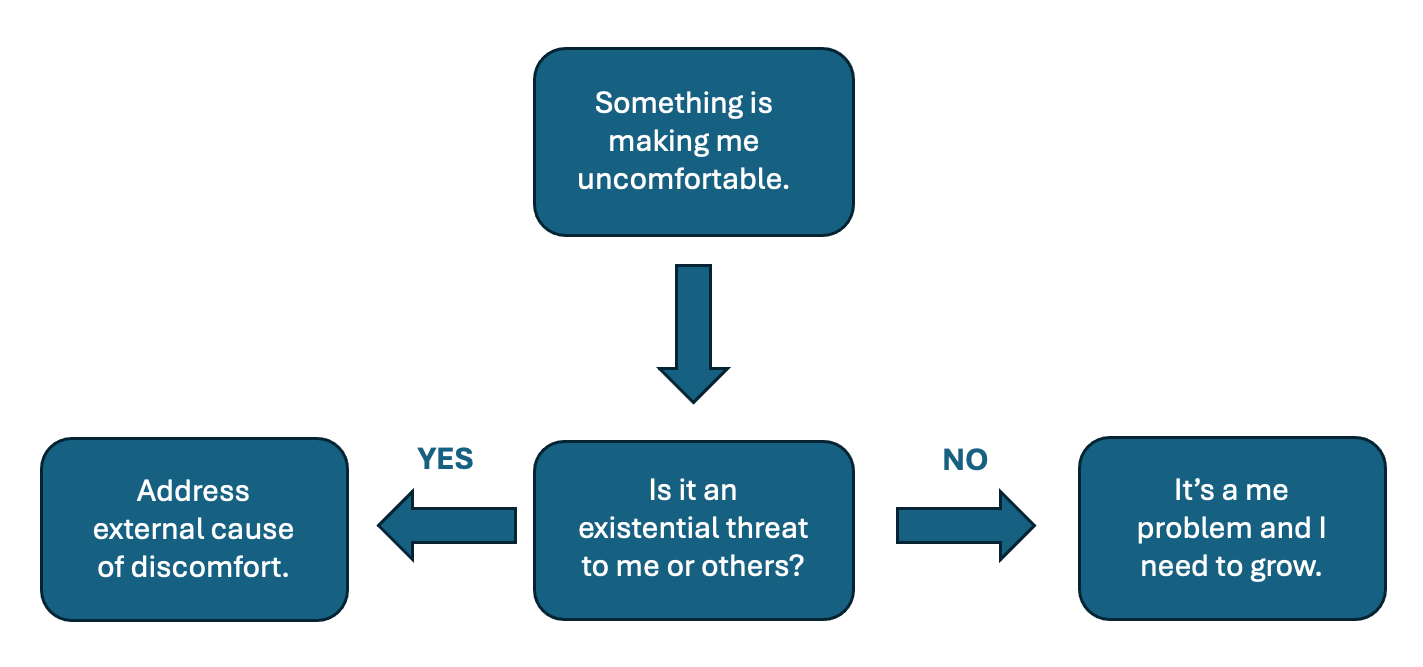Git Gud

Discomfort as a Skill Issue
Hi (No) Wonder-ers,
On my way to the hospital for last week’s OR day, my car (a little 2019 Prius with 160k miles on it and, God willing, at least 160k more ahead of it) ran out of windshield wiper fluid. Wiper fluid is the sort of thing we often take for granted, but hoo boy do we miss it when it’s gone. I tried to drive without it until I could barely see through the mixture of water, snow, salt, and dust. My windshield might as well have been a shower door, better suited to preserving my modesty than my visbility.
I found my way to a gas station, spent $1.30 on their last bottle of wiper fluid, and popped open the hood to my Prius. The array of various tubings, ducts, batteries, wirings, and engine parts made be deeply uncomfortable. I was nervous that I’d accidentally pour wiper fluid into the wrong place and inadvertently turn my Prius into a $19,000 paperweight... or worse, start the kind of automotive fire usually reserved for Cybertrucks. Fortunately, I saw a very inviting icon:

I said to myself, “Self, if I were wiper fluid I would definitely want to go here.” So I poured the wiper fluid into the container bearing this icon, closed the hood, started the car, gratefully operated my now-functional windshield wipers, and enjoyed crystal-clear vision all the way to the hospital.
That discomfort, though. Even though I could eventually intuit the wiper fluid’s proper destination, I had a moment of dread. Why would I, a surgeon who routinely operates on other humans without batting an eye, feel such discomfort looking under a car’s open hood?
The answer is that I spent decades of my life and accrued six figures of student loan debt becoming familiar with genitourinary surgery, well in excess of the 10,000 hours Malcolm Gladwell recommends for developing subject area expertise. On the other hand, I know absolutely jack shit about cars because I never spent any time or energy becoming familiar with cars. Hence my matter-of-fact comfort with the former, and profound discomfort with the latter.
This illustrates that discomfort is often a skill issue stemming from a lack of knowledge, expertise, or familiarity.
We are conditioned to avoid discomfort. If we feel cold, we bundle up and/or turn up the thermostat. If we’re hungry, we eat. If we’re thirsty, we drink. If we encounter a scorpion, we run the fuck away. It’s a survival mechanism that helps us avoid factors that are or could become existential threats.
However, all that make people uncomfortable do not pose an existential threat. Same-sex couples showing affection is not an existential threat. Gender-diverse people existing as their authentic selves is not an existential threat. Bugs Bunny in drag is not an existential threat. Boys playing with dolls is not an existential threat. Consensually kinky eroticism is not an existential threat. Consensual fetishism is not an existential threat. Polyamory among consenting adults is not an existential threat. People using accessibility devices and accommodations is not an existential threat. People needing medications to maintain their medical and/or mental health is not an existential threat.
Nonetheless, I once found all of the above as deeply uncomfortable as the view under my Prius’ hood. And like my automotive discomfort, my discomfort with other humans’ authentic selves came from a place of ignorance and unfamiliarity. Once I stopped avoiding the discomfort and started sitting with the discomfort instead, I could use my discomfort as inspiration to gain the knowledge and familiarity I’d need to increase my comfort level. The more I learn and listen, the more comfortable I become. I ultimately recognized that humans not conforming to my worldview threatens only my worldview; and frankly, it’s worth questioning the usefulness and relevance of a worldview that collapses under the weight of a pronoun.
To be sure, some things are unacceptable and absolutely should make us uncomfortable. Hate and bigotry in all its forms – racism, sexism, homophobia, transphobia, ableism, ageism, fatphobia – represent existential threats to targeted groups, and should make us uncomfortable. Violence, rape, and sexual assault should make us uncomfortable. Easily preventable deaths should make us uncomfortable. Injustice should make us uncomfortable. Healthcare inequity should make us uncomfortable. War and genocide should make us uncomfortable. Driving without windshield wiper fluid should make us uncomfortable. Anything that poses an existential threat to other humans should make us uncomfortable, and we are not obligated to become comfortable with anything that threatens other humans’ existence.
But absent any existential threat to others’ ability to be their authentic selves, we often do better to sit with our discomfort and let it inspire growth, rather than avoid the discomfort and keep stagnating in blissful ignorance. There’s no growth in the comfort zone, and rarely any comfort in the growth zone.

Now if you’ll excuse me, I’ve got to get back to studying my 2019 Prius Owner’s manual.
Git Gud,
Merrit
